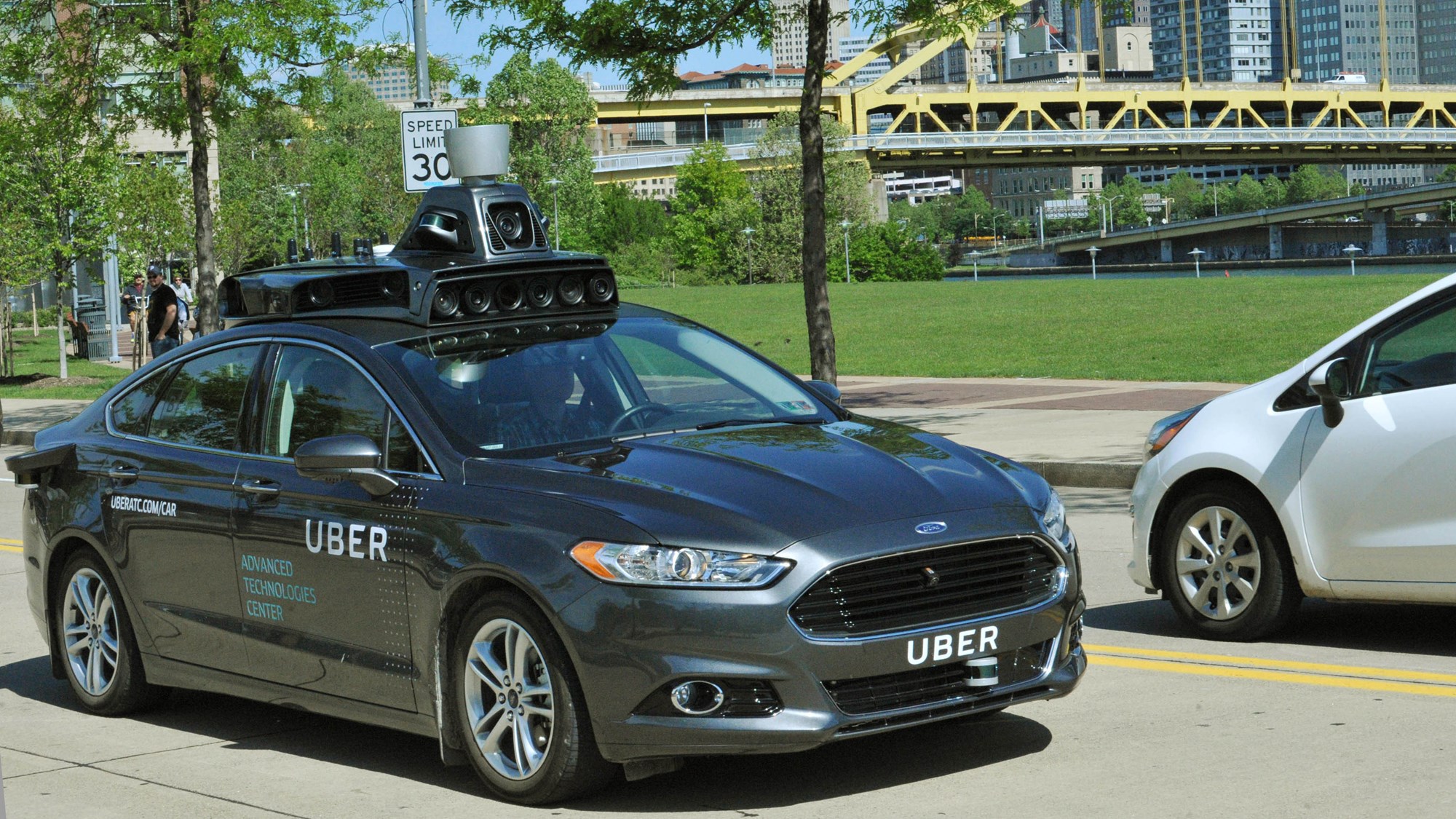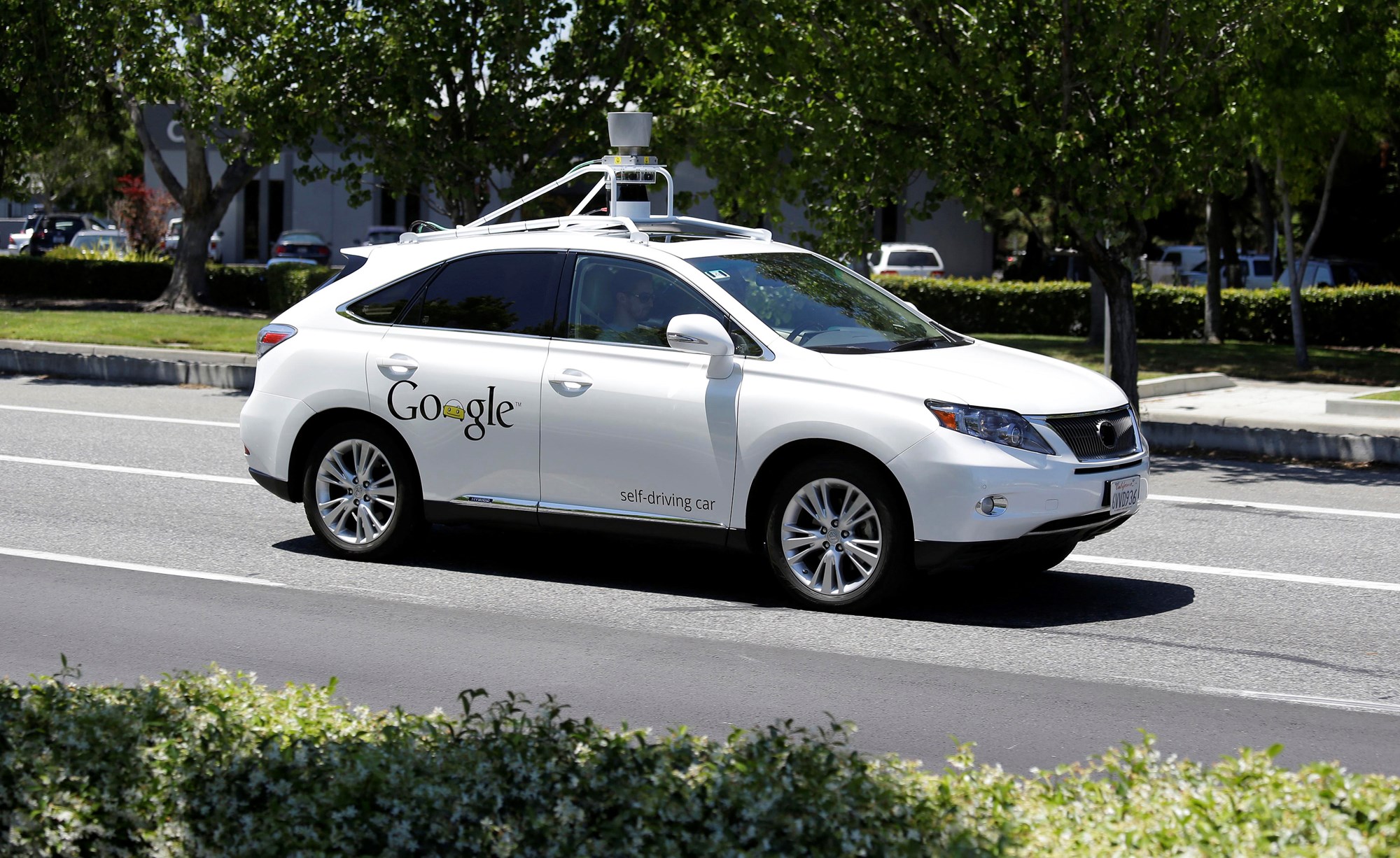UK COMPANY INTRODUCES POLICY FOR FOLLOWING MODERN TRANSPORT BILL ANNOUNCEMENT
Experts have predicted that fully-autonomous cars won’t be on the road until 2050, but one British insurer has got well ahead of the game by preparing for a driverless future.
Specialist provider Adrian Flux has launched the UK’s first personal driverless car insurance policy, providing cover for those who already have part-autonomous features in their car, such as self-parking systems and Tesla’s AutoPilot.
With fully driverless cars still very much in their infancy and not expected to become mainstream for another 30 years, the policy does cover you if you suffer loss or damage at the hands of hackers in one of today’s vehicles.
 A Ford Fusion hybrid outfitted with radars, laser scanners and high-resolution cameras.
A Ford Fusion hybrid outfitted with radars, laser scanners and high-resolution cameras.
The majority of collisions involving driverless cars have been due to human error. Google admitted in March that one of its experimental vehicles was at fault for an accident with a bus in the US after it had misinterpreted where the other driver was going.
It’s these types of incidents that have caused hot debate, with many questioning how insurance for autonomous cars will work if a person cannot be held accountable for a collision.
It was even a feature point of the Queen’s speech last month when she introduced a Modern Transport Bill including insurance cover that extends to accidents caused by the vehicle technology.
And now the first driverless car policy has emerged as a result, though the features of the cover aren’t only applicable to cars of the future.
Gerry Bucke, general manager at Adrian Flux, said: “As the UK continues to invest in driverless research in preparation for the growing market for autonomous vehicles in the near future, we wanted to help provide confidence and clarity around the ongoing debate.

A Google self-driving car goes on a test drive near the Computer History Museum in California. Picture / AP
“More than half of new cars sold last year featured autonomous safety technology such as self-parking or ABS, which effectively either take control or make decisions on behalf of the driver. And it’s only going to continue.
“Driverless technology will become increasingly common in our cars over the next few years. We want this policy to reflect this transition and evolution.
“We already provide discounts for cars fitted with assistive technology such as autonomous braking as it has been proved to reduce accidents, and therefore claims. This is a natural continuation of the work that’s already gone into this area.”
The new driverless policy will cover customers for loss or damage in the following scenarios:
1. If updates or security patches for things like firewalls, operating systems, electronic mapping and journey planning systems haven’t been successfully installed in the vehicle within 24 hours of the owner being notified by the manufacturer or software provider, subject to an increased policy excess.
2. If there are satellite failure/outages that affect the navigation systems or if the manufacturer’s operating system or authorised software fails.
3. Where there is loss or damage caused by failing, when able, to use manual override to avoid a collision or accident in the event of operating system, navigation system or mechanical failure.
4. For loss or damage if your car gets hacked or an attempted hack results in loss or damage.
According to the Institution on Mechanical Engineers, 95 per cent of today’s traffic collisions won’t take place when fully-autonomous vehicles become mainstream in 2050.
Philippa Oldham, head of transport at the Institution of the Mechanical Engineers and lead author of the Autonomous and Driverless report released in February, said: “We need to urgently resolve legislative, technological and insurance issues to help encourage the rollout of autonomous or driverless vehicles.
“The benefits to this sort of technology are huge, with estimates that the overall UK economic benefit could be as much as £51 billion a year due to fewer accidents, improved productivity and increased trade.”
-DailyMail




